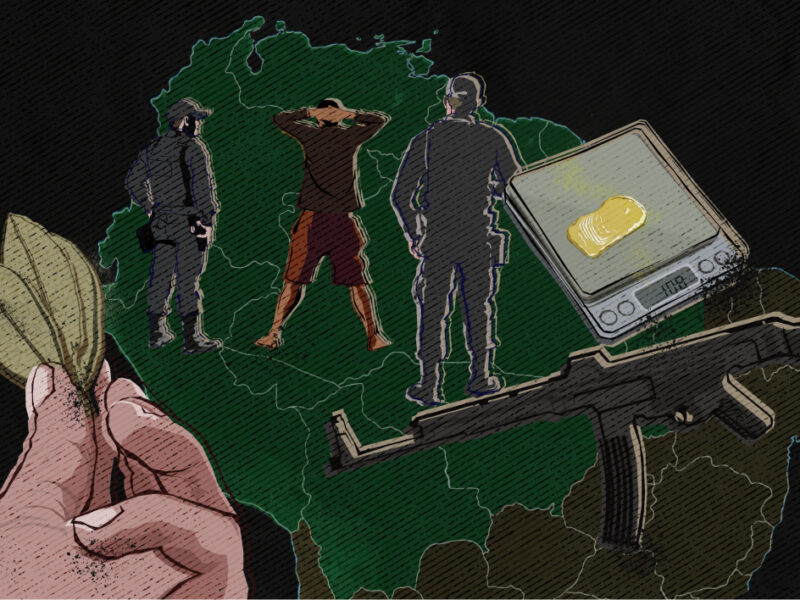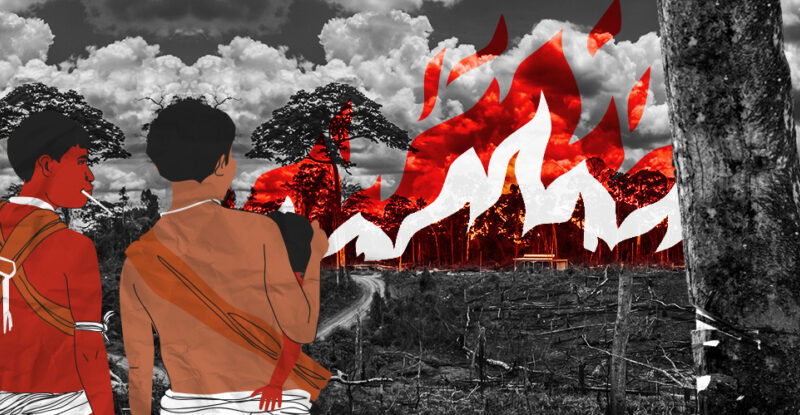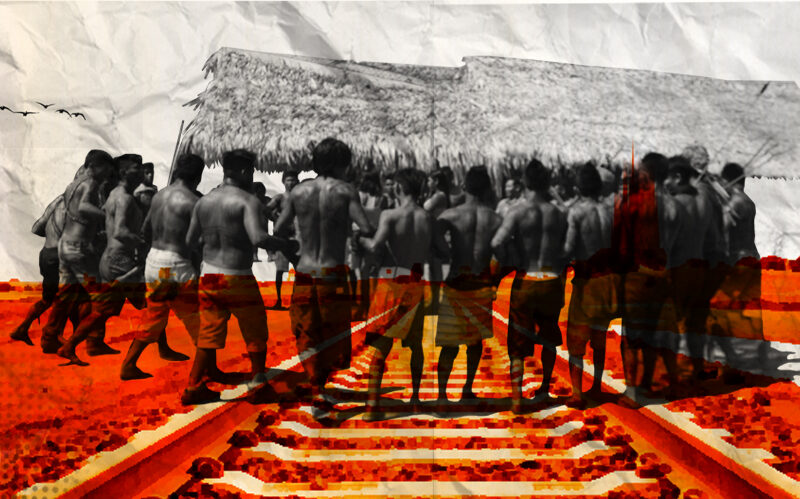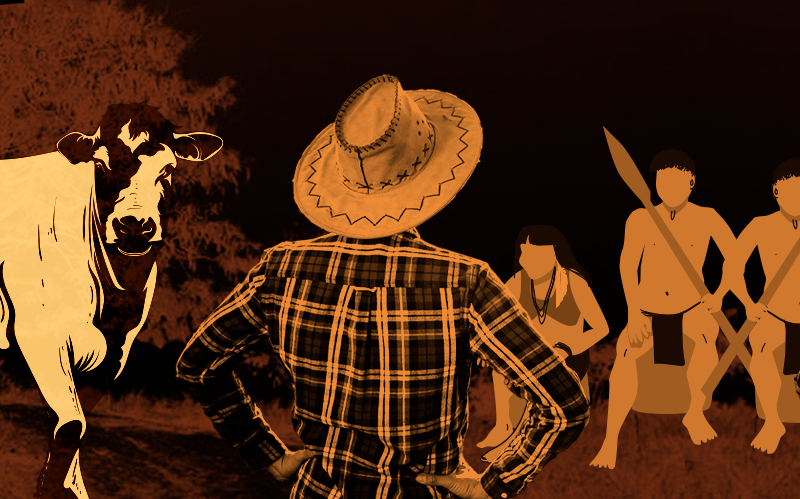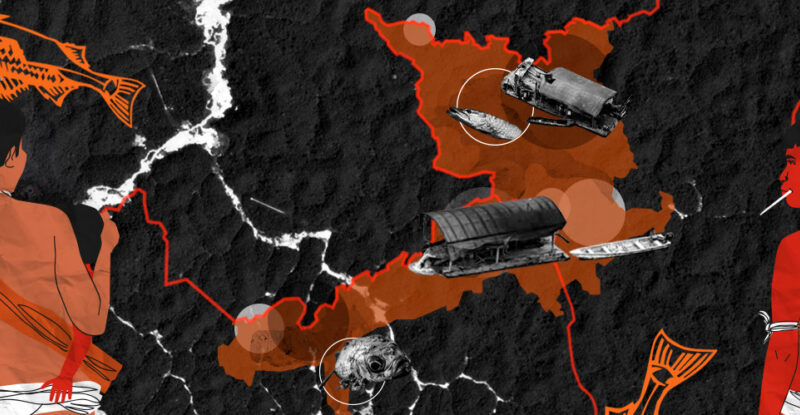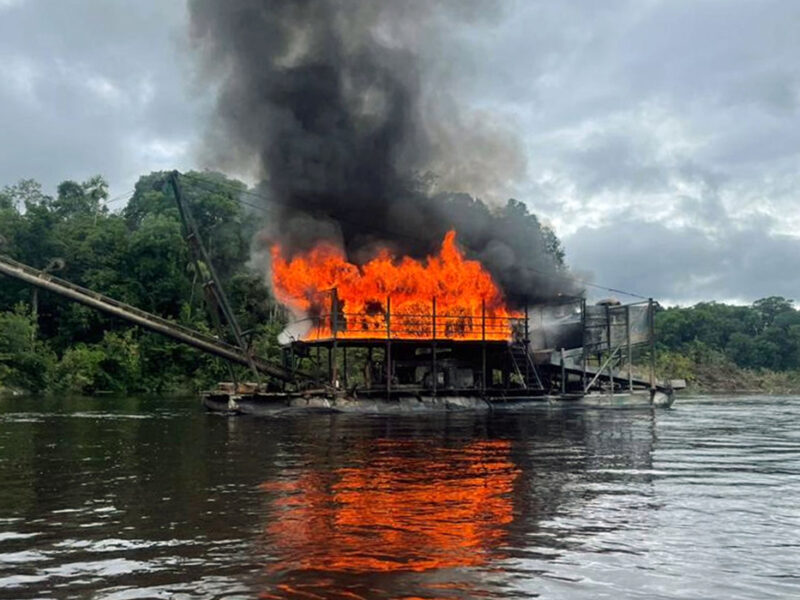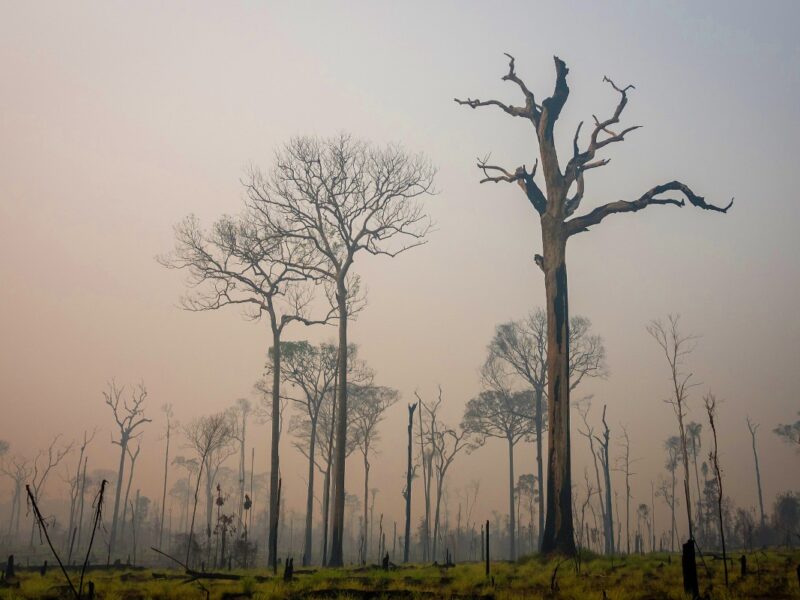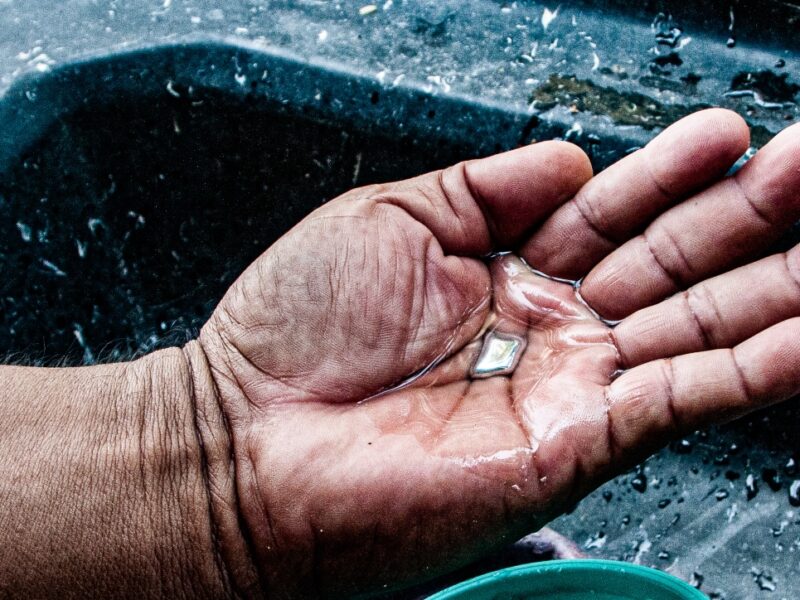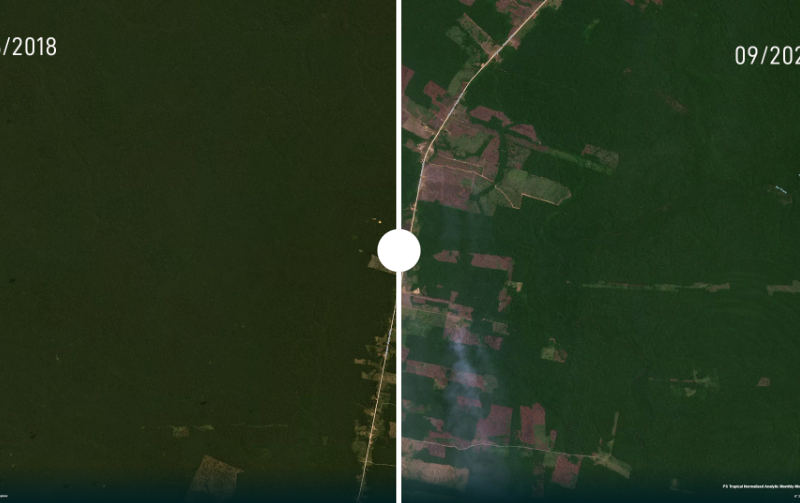The Amazon, the largest rainforest in the world, is also a source and transit point for illegally extracted jungle resources and narcotics. As criminal economies expand, violence and deforestation worsen
Category: long form
Survey points to advance of agricultural frontier into Yanomami Indigenous Territory; over 700 km² have suffered degradation and deforestation
Analysis of data from the Geo-Yanomami group shows that, in addition to mining, the territory also has records of deforestation. The problem is driven by advances of agribusiness.
Ferrogrão railway line will affect six indigenous lands, 17 conservation units and three isolated tribes
Exclusive survey reveals a much greater impact than estimated by agribusinesses. Ministry of Indigenous Peoples shows concern and demands consultation, but Lula’s minister of transport is optimistic about project launched by Bolsonaro.
Despite lawsuit, Casino Group still sells beef from an Amazonian Indigenous land
A new investigation shows that farms located in the Uru-Eu-Wau-Wau Indigenous Territory in the Brazilian Amazon supplied two JBS meatpacking plants that sell beef to brands of the French supermarket giant.
New analysis reveals that 59% of the rivers inhabited by the Yanomami suffer impact from mining and invasions
Survey led by the INPE and Fiocruz, in partnership with InfoAmazonia, was conducted based on satellite images of indigenous land and analyzes the impact of territorial change on rivers and communities, including mining, degradation and deforestation. Over 62% of the Yanomami population live in areas under the influence of invaders.
Illegal gold miners remove equipment and escape crackdown in Amazonas
Satellite images show that the interruption of gold mining immediately changed the color of the river. Operators of dredges, which can cost up to US$1.4 million, said they planned to return to the area after the government anti-mining operation ended.
Deforestation in the Amazon: past, present and future
According to a new study from RAISG, in just five years, the Amazon could lose almost half of what it lost in the past two decades.
From Bolivia to the Tapajós: mercury trafficking for wildcat mining operations on Munduruku Indigenous Territories
InfoAmazonia visited location where illegal mercury is sold along the border between Bolivia and Brazil, for illegal use by wildcat gold mining operations in Amazonia. After the Minamata Convention, Bolivia became the world’s largest mercury importer and it is estimated that half of the metal is sold as contraband to neighboring countries including Brazil, which has eliminated its legal mercury imports.
Four years of Bolsonaro’s Amazon destruction, in satellite imagery
Deforestation in the Amazon has spiraled out of control during Jair Bolsonaro’s as president. InfoAmazonia and PlenaMata have illustrated the destruction using satellite imagery.
From mining to fish: how mercury contaminates the Munduruku Indigenous community
Carnivorous fish are among the most consumed by the Munduruku and the most contaminated by mercury. Scientists suspect the toxic metal, found in the bodies of the members of this indigenous community is seriously affecting the health of adults and children who are born with malformations and developmental delays. Munduruku women already avoid getting pregnant.


